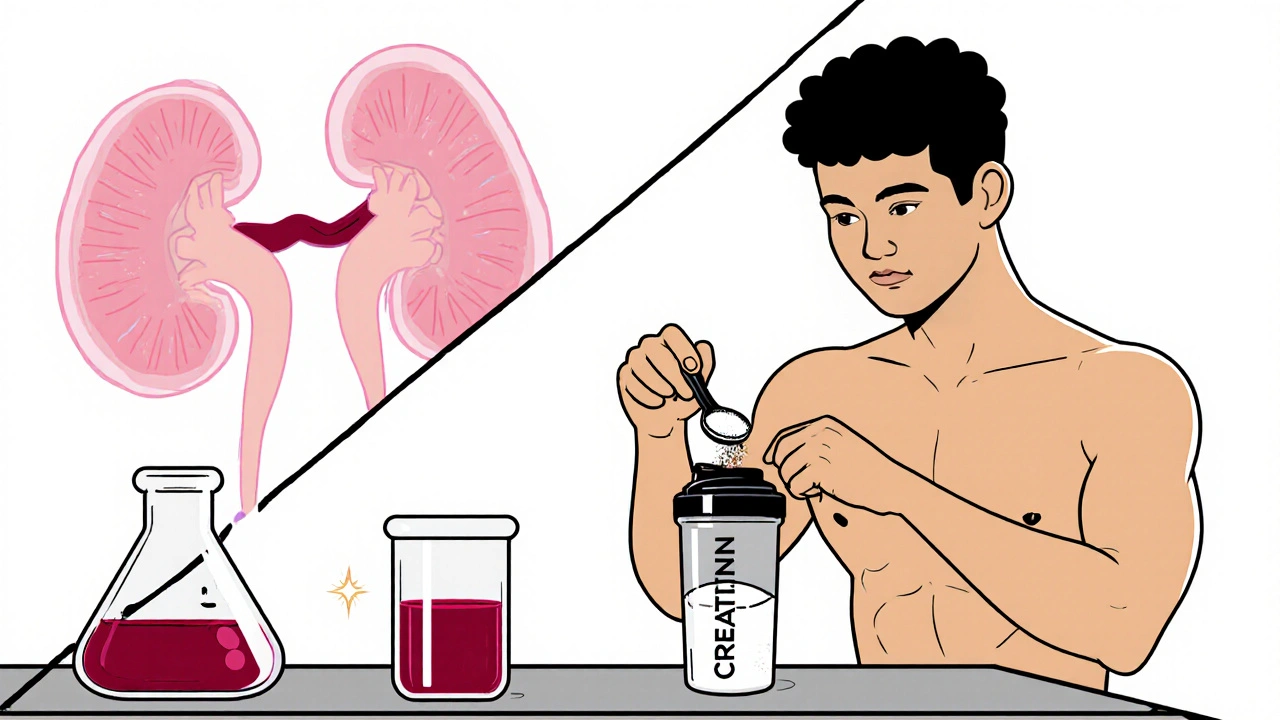
Creatine Supplement & Kidney Medications: How to Monitor Renal Function
Learn how creatine affects kidney labs, which medications matter, and the best monitoring steps to keep renal function safe while using the supplement.
When your doctor checks your kidney health, they’re not just looking at creatinine. Cystatin C, a small protein produced by nearly all cells in the body and filtered out by the kidneys. It's also known as cystatin 3, and unlike creatinine, it isn’t affected by muscle mass, diet, or age in the same way—making it a more consistent signal of how well your kidneys are filtering waste. If your kidneys are struggling, cystatin C builds up in your blood before creatinine even starts to rise. That’s why it’s becoming a go-to tool for spotting early kidney damage, especially in older adults, diabetics, or people with high blood pressure.
Cystatin C isn’t just a standalone test—it works with other markers to give a fuller picture. It’s closely tied to glomerular filtration rate, the gold standard measure of how efficiently your kidneys filter blood. When cystatin C levels go up, your GFR usually goes down. Doctors use it to estimate GFR more accurately than creatinine-based formulas, especially when creatinine results are misleading. For example, someone with low muscle mass might have normal creatinine even if their kidneys are failing—but their cystatin C will show the truth. It’s also used to monitor patients on dialysis, those taking nephrotoxic drugs, or people with chronic conditions like heart failure where kidney function can decline silently.
What you won’t find in most lab reports is how often cystatin C is overlooked. Many clinics still rely only on creatinine, even though studies from the New England Journal of Medicine and the Journal of the American Society of Nephrology show cystatin C catches kidney problems earlier and more reliably. If you’ve been told your kidneys are fine but still feel off—fatigued, swollen, or urinating differently—it might be worth asking for a cystatin C test. It’s not expensive, it’s quick, and it can change your care plan.
Behind every cystatin C result is a story: a diabetic managing complications, an elderly patient avoiding nephrotoxic meds, or someone with high blood pressure trying to protect their kidneys before damage becomes irreversible. The posts below dive into exactly that—how cystatin C fits into real-world diagnosis, how it compares to other kidney markers, and what your numbers actually mean for your health. You’ll find clear breakdowns of test interpretations, when to push for testing, and how to use this information to make smarter decisions with your doctor.

Learn how creatine affects kidney labs, which medications matter, and the best monitoring steps to keep renal function safe while using the supplement.